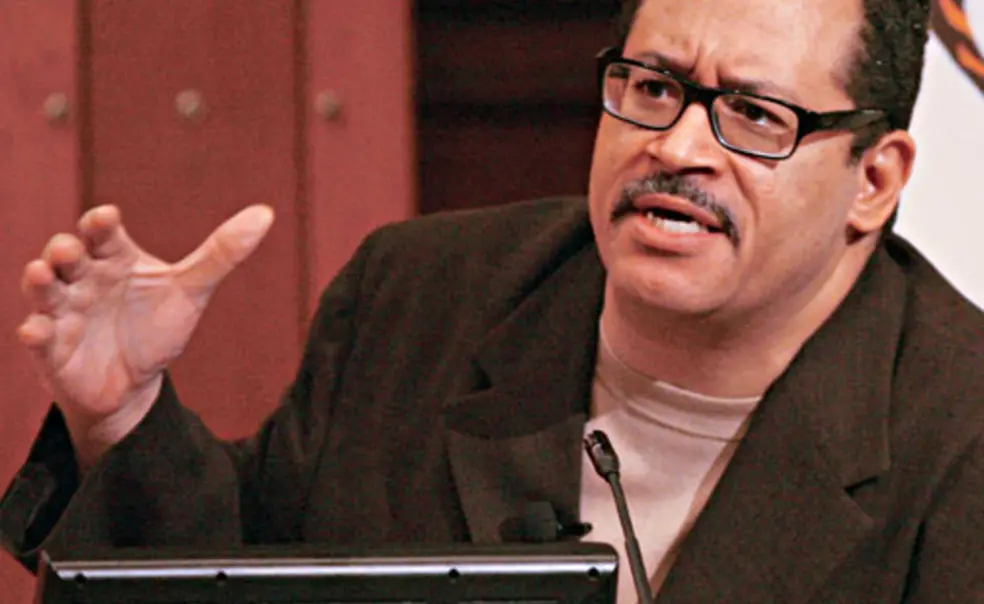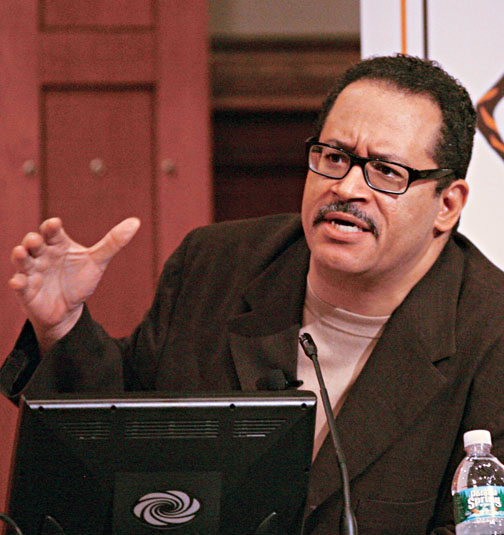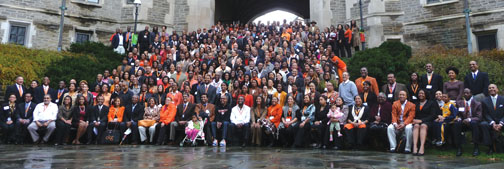Black alumni return for three-day conference
University unveils plan to engage participants as donors, volunteers
About 650 people returned to campus Oct. 22–24 for a three-day “Coming Back and Moving Forward” conference for black alumni, which President Tilghman billed as a “family reunion.”
The conference, a follow-up to the 2006 “Coming Back and Looking Forward” conference, featured lectures, discussions, and panels on topics ranging from financial aid to the future of black politics, providing an opportunity for alumni to connect with students, faculty, and administrators.
“Sister Tilghman” — as some speakers called her — noted three principal achievements since the 2006 conference: the growth of the Center for African American Studies; the opening this fall of the Carl A. Fields Center for Equality and Cultural Understanding in the former Elm Club building; and the expansion of the financial-aid program. Dean of Admission Janet Rapelye pointed to a record number of minority students in the Class of 2013.
Some gaps remain. Professor Eddie S. Glaude Jr. *97, chairman of the Center for African American Studies, noted that African-Americans comprise only 3 percent of the Princeton faculty and 2 percent of current graduate students. Glaude urged attendees to “spread the word that academia is a good place for African-Americans,” and Graduate School administrators asked the alumni to encourage talented students to consider Princeton.
As Ken Bruce ’83, assistant treasurer of the Alumni Council and former president of the Association of Black Princeton Alumni, acknowledged, “For most [black alumni], our Princeton experience is complex.” He said that the ABPA and the Alumni Association are determined to “try different ways of bringing us back” and that it is important for black alumni to “feel like stakeholders in the University.” To that end, the University used the occasion to launch “Connect,” a campaign aimed at involving black alumni as volunteers and increasing their participation in Annual Giving (the goal: $4 million in the next three years). Connect co-chairman Dennis Brownlee ’74, a University trustee, said returning alumni “were thrilled” with both the plan and the conference itself.
Several alumni said they found the campus strikingly different from their own time at Princeton. Danille Taylor ’74 was not only part of the first significant wave of African-American students, but one of the first women. “It’s not like when we were here,” she observed. “We were double minorities. We were invisible.” Taylor praised the greater support network for today’s black and female students. Christy Pichichero ’98 said she was surprised by the number of campus groups for African-Americans compared to a decade ago.
A discussion with current black students, moderated by outgoing Vice President for Campus Life Janet Dickerson, provided insights into the minds of undergraduates of a different generation. Daniel Dickerson ’10 recalled that during a campus visit as a high school senior, a Princeton swimming coach alluded to the University’s strong alumni network, telling him, “Other schools can offer you four years. I can offer you a lifetime.” Margaret Harris ’11 recalled the great support she received when she arrived on campus pregnant with her now 21-month-old son.
Each night featured an address by a distinguished alumnus. On Thursday, author and Georgetown University professor Michael Eric Dyson *93 dissected the media controversy over then-candidate Barack Obama’s March 2008 speech, “A More Perfect Union,” delivered after questions arose about his association with the Rev. Jeremiah Wright. Dyson distinguished the prophetic role historically played by the black clergy from Obama’s role as a politician, arguing that Wright’s sermons were taken out of context. While African-Americans are understandably proud of Obama’s accomplishments, Dyson said, they should hold him accountable for his actions on issues that are important to them.
In a large tent outside Alexander Hall, Friday evening’s keynote speaker, Professor Cornel West *80 spoke about his personal journey, saying of Princeton, “There was a time when Negroes couldn’t even set foot in this place. And look at us now.” On the final night, attendees braved unrelenting rain to hear Glaude speak about race — and the way it is perceived and discussed — at Princeton and in a United States led by a black president. (Glaude’s talk was moved to McCosh 50 after the downpour cut the speaker system in the tent, forcing organizers to resort to a megaphone.)














No responses yet